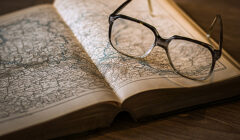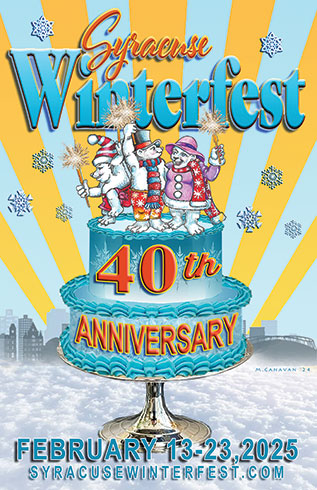Reading History
On the occasion of Columbus Day, now also Indigenous People’s Day, I got into a brief conversation with a new acquaintance on the subject of the Israel/Palestine conflict, which at the moment has heated up to a point of a declaration of war – though by the time this issue of the paper is published, things may have changed.
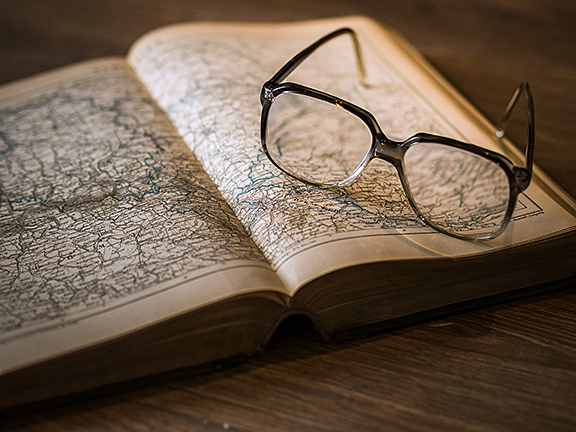 We were both lamenting the situation, though we quickly agreed that we knew too little about the players and the game to really understand what was happening, and why, and thus to have an informed opinion. And of course, there is a heated and growing debate over who Christopher Columbus was, why he sailed, and whether he merits a holiday. The story as I heard it as a school child, and the way that story is told today, are like two completely different tales.
We were both lamenting the situation, though we quickly agreed that we knew too little about the players and the game to really understand what was happening, and why, and thus to have an informed opinion. And of course, there is a heated and growing debate over who Christopher Columbus was, why he sailed, and whether he merits a holiday. The story as I heard it as a school child, and the way that story is told today, are like two completely different tales.
Not long before that conversation, I had spoken to someone else about my sad lack of knowledge of Eastern Europe and Russia, as I was reading the incredible novel, Russka, by Edward Rutherfurd. As I read another book, set in Poland, I was again taken by surprise about my complete ignorance of the enormous size of the country, and how much it has changed throughout history.
These various moments got me thinking about history – and about how we read it.
I’ve noted before that I had the good fortune to have attended a high school that demanded a lot of its students, and in particular, in our study of history. My American History teacher, a quirky man who would take half a class to pack and prepare his pipe as he lectured, which pipe he might or might not light eventually. In any event, whether he intended it or not, his meticulous attention to the ritual kept his students watching, and listening with unusual focus. He was also notorious for arriving at class with a stack of material that was copies of letters and original papers of the people whose lives and actions we were studying. Not content to have us read interpretations of their ideas, this excellent teacher wanted us to read the words of the early Americans as they were written. Of course, he had the luxury of only challenging us with early American English as opposed to the Greek or Latin, Runes or Cuneiform that would have been required were we studying Ancient European history. But the main thing is that he wanted us to dig in not only to historians’ ideas, but into the self-expressed ideas of the people who made the history we were studying.
Not long ago, I read a column reacting to a book examining whether Adolf Hitler was right or left wing, arguing that in fact, contrary to much published about him, the 1997 Hitler of History, by John Lukacs, had it right: “Contrary to the standard view of historians, Hitler was not a conservative who embodied the values of the pre-World War I German ruling class. He was in fact a radical revolutionary who felt nothing but contempt for the political and social order of Imperial Germany and who rejoiced at its abolition after Germany’s defeat in 1918…Hitler was not a German patriot or old-fashioned monarchist but an expansionist nationalist who appealed to the masses directly, over the heads of traditional German elites.” (https://chroniclesmagazine.org/editorials/the-hitler-of-legend/)
I’m not here to argue whether Columbus was genocidal or Hitler was left-wing. Rather, I began to wonder about how, why, and when we examine history through the written word. In truth, most of us don’t have the time read deeply from original sources ourselves, let alone access to them the further removed we are from them in time and place.
Even my experience with original sources, profound as it was for a high school kid, was guided by someone who was selecting the material for us to examine. We had to trust that he didn’t have an “agenda” in selecting the specific sources we read.
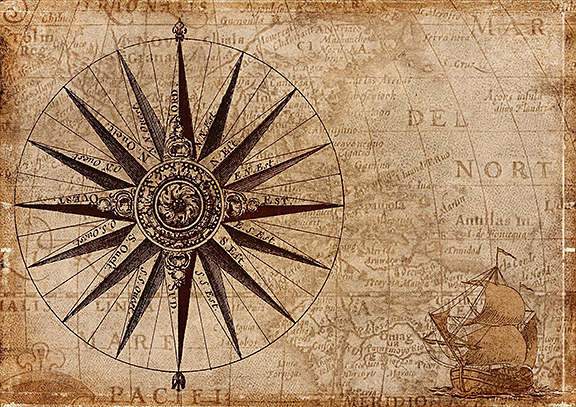
Were there some guidelines, I wondered, to reading, and learning something about, history? I took a stab at it – and I’d guess you’ll likely have some additional suggestions of your own.
1. History is written by the victors. That’s something we’re often warned as we dig into the story of the past. George Orwell also warned us that “Who controls the past controls the future. Who controls the present controls the past.” And he went further to suggest that who defines words controls the conversation – which is why any legitimate debate has to start with an agreement on the definition of terms. If we’re going to argue about the value of a toaster, we have to first agree on what a toaster is, even if only for the purpose of that specific debate. But importantly, we always have to remember that those in power will want to depict themselves in the light most favorable to themselves, and to make a worst case for their enemies.
2. Read original sources, as well as scholarly examinations of events and periods of time. If you have to rely on translations, read multiple translations. Look for discrepancies in interpretation, and be willing to examine what a word meant at that time. I recently stopped in the middle of a novel just to look up what a “bicorne” looked like, and the difference between a gig and a hansom.
3. Read fiction of the era if it’s available. Poetry, songs, plays and essays are useful, too, in learning what entertained people, and how they idealized – or frowned upon – types of behavior. 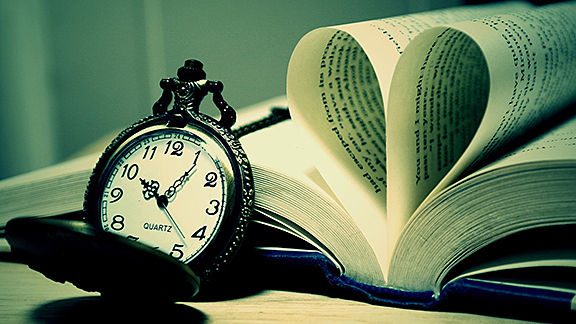
4. Look at the artwork of the era being examined. What did they paint, sculpt, and design? Granted, much artwork was historically commissioned, or depicted the elite or religious figures, so wasn’t a complete view of the world but one focused on who or what was “important.” But even that is a clue to understanding a period of time in the past. Even taking a good look at the size and layout of a house will tell you a great deal about what was valued in life, and the day to day life of people at the time the home was constructed.
5. Examine the public spaces that were built and frequented. What did people, cities, nations spend their money constructing? What can that tell us about their values – and how does that contrast with what we’ve learned about them historically? On a recent trip to the UK, I wasn’t exactly surprised to find a Cathedral at the heart of many old cities and towns, but a walled city center, or a fort – and prison – taking up much of a place was unlike what we typically find in an American city.
6. Choose a wide variety of scholars, both old and contemporary, and read them with what one teacher used to call a “cold fishy eye.” What she meant by that was, just because the writer has a collection of degrees, don’t assume they can’t make a mistake, or have any biases. Be willing, in fact, force yourself, to read people you feel inclined to disagree with as well as people who seem to have it right from your perspective.
7. Be willing to change your mind. One of the lines of inquiry that continues to fascinate me is that as we become more technologically sophisticated, new interpretations of things crop up. DNA and mapping of movements and mixing of people that it demonstrates; ground penetrating radar; and long years of “listening” to sounds from far out in space and deep under the oceans and earth’s crust have taught us a great deal about the world and its history that was simply hidden from us when we lacked the means to observe it. Because we think we have something figured out now doesn’t mean a new bit of evidence won’t give us a whole new take on a bit of history. Take, for example, the idea that it wasn’t so much the Gauls and Huns who took down the Roman Empire, but the lead they fancied for their water pipes and in their food. This notion dates back to a 1983 paper in the New England Journal of Medicine by Jerome Nriagu – and is still being debated 40 years later.
 8. Be skeptical, and use your own logic to test someone’s thesis. For example, does it make sense that people would depict themselves in their most idealized form in artwork, or that they would depict themselves as completely unlike what they actually appeared?
8. Be skeptical, and use your own logic to test someone’s thesis. For example, does it make sense that people would depict themselves in their most idealized form in artwork, or that they would depict themselves as completely unlike what they actually appeared?
9. There are some fun online resources to explore, like the podcasts History Hits, The Metatron, and Forgotten History, that can pique your interest in a time period or historic figure.
10. Try to examine history as if you lived in the era under examination. I’ve often wondered how it would change my worldview just to have to get up and put on fifteen layers of clothes before I began my day – let alone live without indoor plumbing, or not being able to have access to books (or even the skill to read them), or having no understanding of what the earth looked like – or that there was even much beyond the miles I could walk in any given day. We always have to put ourselves in the place of someone who existed in a particular time and place before we point fingers and condemn.
And a bonus – keep reading, and enjoy the exploration!

